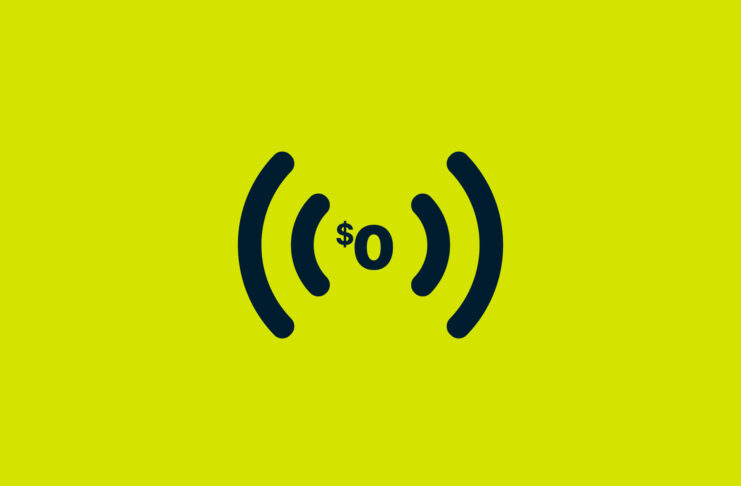Bitcoin is both an anonymous payment system and a transparent, open network where anyone can track and verify transactions.
How can both be true? It might seem confusing at first but only requires little explanation to make sense.
Depending on how you use Bitcoin, it can be the perfect tool for transparency in a charitable organization or the untrackable currency of choice for ransomware and online drug markets.
How anonymous are traditional payment methods?
Accounts
In traditional payment networks like banks, credit cards, Paypal or Venmo, your account is linked directly to your name and government ID.
All information regarding your account, however—such as balance and identification—is hidden from the public eye. Though in some systems, such as credit cards, the merchant and the payment provider will see your account number, name, and the issuing institution of your card.
Transactions and privacy
- A vendor might ask for your zip code, address, phone number, or even a scan of your passport to proceed with the transaction.
- The merchant will be legally required to share the transaction information with local authorities—sometimes upon request and sometimes automatically.
- National governments, surveillance agencies, and international police agencies will also get automated access to the data and can see what other purchases you have made with your card and your account balance.
- The merchant will also likely sell your data to companies like Equifax.
- Other companies could also buy your credit data, for example, if they wish to assess your ability to pay back a loan.
On the plus side, your neighbor will probably stay in the dark about how much you spend, and how much you have.
The Blockchain and privacy
The Bitcoin blockchain handles accounts, transactions, and privacy very differently.
Accounts
Anybody can create a Bitcoin account—called a wallet—on a computer or smartphone. To create an account, you don’t need to supply a name, address, or email. And because you don’t even need an internet connection to create an account, it can be tough to track who owns which account.
Transactions and privacy
- A public ledger—the Blockchain—records all transactions. Everyone can see the Blockchain with Bitcoin software (called the client).
- All the account balances of all accounts are visible, but not the owners of the accounts.
- A single user might have multiple accounts, and multiple users might also share an account.
- To receive or make a payment, two users must communicate their address to each other. In this instance, it is most likely that one or both of the users will be ‘unmasked.’
- While the receiver could create a new, empty account for each payment they get, the sender will reveal the balance of the account from which they made the payment.
Keeping your identity secret during a transaction is difficult. Most of the time you will know which person or shop you are making the payment to, and they will know who you are.
If either party subscribes to a centralized service—such as a payment provider or wallet—, this centralized service may aggregate this information and also sell it, or make it available to law enforcement.
Hiding your Bitcoin identity with Mixers and Coinjoin
Coinjoin
Firstly, if your Bitcoin wallet is associated with your name or email address, it’s hard, but not impossible, to disassociate your identity with Bitcoin Mixers and Coinjoin.
In Coinjoin, a large group of users essentially throw their Bitcoins into a bucket and then take back the same amount from the bucket. This “Bitcoin bucket swapping” can be done in a decentralized, trustless way through implementations like Joinmarket.
The above graphic shows how a system like Joinmarket works only for standardized outputs. It’s easy for an observer to see that you are using a Coinjoin transaction, but they are not able to easily determine which of the outputs belong to you.
Mixers
In Mixers, two people swap their Bitcoins with each other, and it’s difficult to observe that they used a mixer. While most mixers today are large centralized services, mixing could be done in a trustless way through fancy cryptographic tools like atomic swaps, though such systems do not have a comprehensive implementation.
When using a mixer, neither participant can learn a lot about the other participants, and therefore cannot potentially fully link accounts with an identity.
How to pick and use Altcoins for anonymity
Altcoins (alternative cryptocurrencies) are the most popular way to anonymize Bitcoin transactions. Users exchange their Bitcoins for the altcoin of their choice, then swap the altcoin back into Bitcoin. If using the right Altcoin, it’s tough to correlate and track user accounts.
How to pick a good Altcoin:
- The altcoin must be popular enough that your transaction won’t stick out.
- The altcoin should provide additional privacy guarantees.
- The first and second exchange should not be the same, or else someone could try to link your two transactions through technologies like browser fingerprinting.
Is Bitcoin anonymous?
By default, Bitcoin payments are far more private than traditional electronic payments like bank wires or credit cards. But with some effort, they can still be tracked.
Bitcoin’s privacy model works drastically different to that of other payment systems, which forces us to adapt our thinking when trying to be more private.
Bitcoin gives us plenty of options to be truly anonymous, but employing these options requires skills, knowledge, and care.
Read more in the complete ExpressVPN guide to Bitcoin anonymity



























Comments
Who is owner of this account
Lexie wrote this post for ExpressVPN.
ME COMPJUTER
very good post thanks Bitcoin
FOR MI